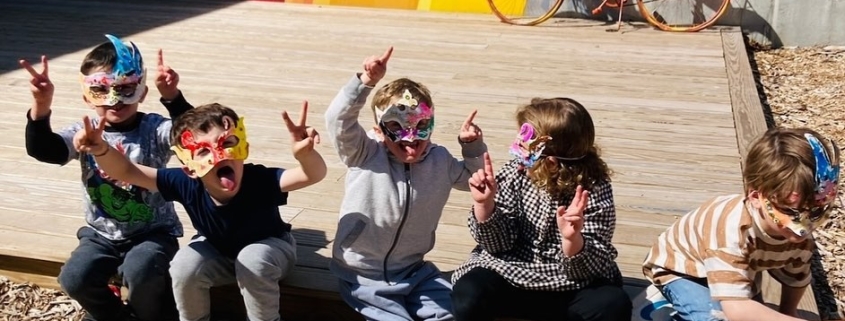Essential Social Skills for Your Kids—And How To Help Build Them
It’s summer camp season again! With a closer glimpse into how your child plays and interacts with peers, you may naturally wonder, “What social behaviors are typical at this age?” and “Are there any skills I can help my child build?”
Social skills play a vital role in a child’s overall development. They are the building blocks for healthy relationships, effective communication, and positive interactions with others. Indeed, as a parent, you have a significant influence on nurturing your child’s social skills. In this blog post, we will explore some valuable tips to help you support and enhance your child’s social skill development.
Encourage Active Listening
Active listening is a fundamental social skill that enables children to understand and respond appropriately in conversations. Encourage your child to maintain eye contact, nod, and ask relevant questions. Practice active listening at home by engaging in meaningful conversations and demonstrating attentive behavior. For instance, when your child comes home from camp with a beautiful piece of artwork, you might say, “Tell me more about your painting. What inspired you to paint a sunset? What made you choose these colors? How did you feel when you finished it?”
Build Communication Skills
Effective communication is a vital social skill. Encourage your child to express themselves clearly and respectfully. Teach them to use appropriate body language, tone of voice, and facial expressions when communicating with others. Engage in conversations with your child, encouraging them to articulate their thoughts and feelings. Provide constructive feedback to help them improve their communication skills.
Promote Empathy
Empathy is the ability to understand and share the feelings of others. Encourage your child to consider different perspectives and recognize the emotions of their peers. Discuss real-life scenarios and ask your child how they would feel or respond. Puppets or toy figurines are a great way to teach. For instance, set up a scenario where a new child has come to the school, but isn’t sure about making friends and see how your child does at figuring out ways to get the new kid to get acclimated. This exercise fosters empathy, while helping your child develop compassion and build stronger connections with others.
Foster Inclusivity
Encourage your child to form a diverse social circle and include others in their play. Teach them the importance of embracing diversity and respecting individual differences. Celebrate holidays like Cinco de Mayo, Diwali, or Chinese Lunar New Year to show the beauty of embracing diversity. Read books like We’re All Wonders, Strictly No Elephants, or Each Kindness that help your child understand that everyone deserves to be treated with kindness and fairness.
Teach Conflict Resolution
Conflict is a natural part of human interaction. Teach your child constructive ways to resolve conflicts, such as using “I” statements, listening to others’ viewpoints, and finding win-win solutions. Role-play different scenarios at home to help your child practice problem-solving and negotiation skills. For example, you might set up a scenario where both toys want to have the same toy, snack, car, or house, but they must share. Prompt your child to explore peaceful compromises.
Practice Good Manners
Teaching your child good manners sets a foundation for respectful social interactions. Teach them basic manners like saying “please” and “thank you,” greeting others, and using table manners. Reinforce these behaviors consistently, both at home and in public. When children understand and practice good manners, they are more likely to build positive relationships and gain the respect of their peers.
Model Positive Social Behaviors
Children often learn by observing their parents’ actions. Model positive social behaviors by demonstrating kindness, respect, and empathy in your daily interactions. Show appreciation for others, use polite language, and demonstrate active listening when conversing. Your child will absorb these behaviors and incorporate them into their own social interactions.
Encourage Peer Interactions
Provide opportunities for your child to engage with peers in various settings. Encourage participation in group activities, playdates, or organized sports. These interactions help children develop social skills, including sharing, turn-taking, and cooperation. Monitor these interactions and offer guidance when necessary to promote positive social behaviors. Come shine with us: we have half-day, full-day, and Saturday camps running all summer long. Or give the Shine Studio a try with drop-ins available in 30-minute time slots from 2:30-6 pm on Mondays, Wednesdays, and Fridays (ages 4-13).
As a parent, you have a significant role in supporting your child’s social skill development. By implementing these tips and providing a nurturing environment, you can empower your child to build strong relationships, communicate effectively, and navigate social situations with confidence.



